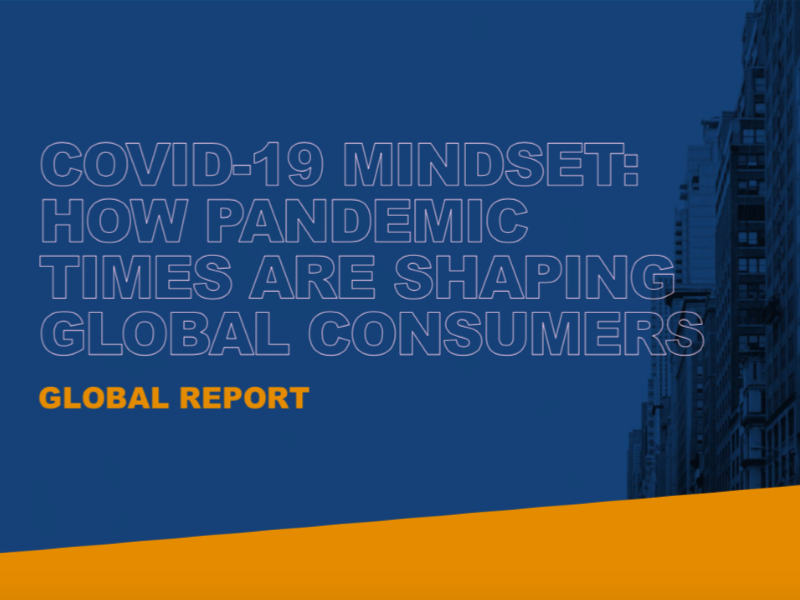Diana Marszalek 17 Apr 2020 // 6:14AM GMT

ST. LOUIS — The Covid-19 pandemic has fundamentally changed consumers’ world views — impacting priorities, values and relationships — in turn making shows of empathy, support and cooperation increasingly important to companies’ long-term success, according to new research.
The FleishmanHillard study, How Pandemic Times Are Shaping Global Consumers, found that the coronavirus outbreak has put a heightened focus on employers and brands, meaning the actions companies take now could influence consumers’ buying patterns and employees’ decision-making for years to come.
The survey of 6,566 adults in six countries (US, UK, China, South Korea, Italy and Germany) also revealed that consumers’ fears and expectations are reshaping their definition of “good” brands and organizations, calling for companies to act in accordance with what the public wants.
Doing that includes four fundamental tenets: living your values; being the best employer; not discussing recovery too soon for risk of appearing unsupportive of containment efforts; and reimagining the fundamentals of business, which could include government playing a more influential and involved role, FleishmanHillard said in its report.
“This crisis has clarified what really matters to individuals,” said Natasha Kennedy, senior partner and global managing director of FleishmanHillard’s True Global Intelligence practice. “Consumer behavior has changed, and for many, those changes will persist past the pandemic. For example, consumers are signaling a seismic shift in their future buying behaviors for products and services they deem important. With a clear understanding of how the crisis has changed our expectations and beliefs, organizations can make decisions and communicate relevantly and meaningfully among employees, customers and communities.”
When it comes to managing the pandemic, 47% of respondents across markets said their national governments are handling the situation better than other institutions, but that varied per region. 79% of Chinese consumers rated their national government “excellent” or “great,” their counterparts in the US (34%), UK (50%), Korea (43%), Italy (39%) and Germany (37%) all give their national governments much lower ratings.
Employers of all sizes perform the worst, with only 29% saying that their employers are “excellent” or “great.”
However, 89% expect employers to be creative and generous in mitigating the impact of coronavirus on employees. 91% expect companies to take steps to help workers stay healthy, providing them with protective equipment and hand sanitizer, making sure they have breaks to wash their hands and making physical changes to space and operations to allow social distancing, among other steps.
78% understand that some companies will need to furlough and lay off workers, a majority that holds across these countries (59% in Korea, the lowest, and 86% in the U.S., the highest). 52% describe employers taking better care of their employees as “very important” right now.
Additionally, consumers are willing to help companies that support their employees, according to the research. 71% will find ways to continue to patronize businesses, such as opting for delivery and pick up (50%) or through holding appointments by phone or online (44%). 34% said they will purchase or pay for things they can’t currently use, like gift cards (19%), and continue paying for memberships and services (17%).
The research found that consumers plan to be cautious, even when the spread of the virus subsides, with substantial implications for economic and social recovery. 95% of consumers want companies to implement physical protection and distancing measures to help keep them healthy. 65% are currently postponing purchases and travel, and 52% intend changes to their buying behaviors to continue.
The pandemic has changed what people value, and they want new benefits and policies to endure. 68% report the pandemic has changed the products and services they once thought were important, a phenomenon even more widespread in China (86%) and Italy (73%). 63% of employees want new benefits offered during the pandemic to be made permanent.
And, nearly everyone has felt the impact. 98% have undertaken some new practice or postponed or canceled plans or purchases, and 90% report enduring changes in expectations and behaviors after the pandemic ends. 78% are concerned for their health, and 74% are concerned for their financial situation; this level of concern is consistent across demographics.
Other new research comes from Ruder Finn, which polled US employees on how they feel about their company’s leadership during the crisis.
In that study, which surveyed more than 15,000 US adults, including more than 6,500 full-time workers, respondents expressed confidence in their employers’ ability to get them through the Covid-19 pandemic, and that communications has a major impact on building that confidence and optimism.
When asked about leadership’s ability to guide their business through the crisis, full-time employees rate confidence at 7.3 (on a scale from zero to ten; zero meaning no confidence and ten meaning full confidence), with 51% expressing full confidence. Furthermore, full-time employees rate confidence that their company’s leaders are “looking out for us employees” at 7.2, with 54% expressing full confidence.
Employee confidence in their own company’s leadership was significantly higher than employee confidence in the overall economy, which ranks at only 5.1 in the survey.
While a strong majority (73%) of full-time employees grade their employer A or B on employee communications during the pandemic, there are still 28% that give grades of a C or lower. And smaller companies generate more confidence than larger companies, suggesting larger companies could still do more, the study said.
“At a time when people have reason to be truly scared, corporate communication and leadership can make a huge difference,” said Kathy Bloomgarden, CEO of Ruder Finn. “We’re seeing leader after leader, from small companies to global multi-nationals, going to extra lengths now to speak out and share information with their employee-base. It doesn’t make the scary stuff go away, but it builds confidence.”


































.jpg)


















